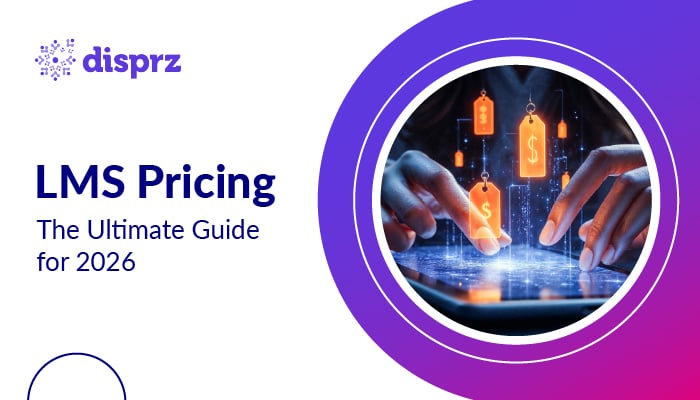In a world propelled by artificial intelligence (AI) and automation, change is happening at an unprecedented pace. It's a critical juncture; we're on the brink of a reskilling revolution to ensure that automation doesn't leave workers behind. According to a survey by the World Economic Forum, automation is projected to reshape 1 billion jobs worldwide by 2030. This underscores the urgent need for proactive measures in learning and development (L&D) functions.
Traditional sectors are facing displacement as the demand for skills in emerging technologies like data analysis, generative AI, and software development skyrockets. Nowhere is this transformation more pertinent than in the Middle East (ME) region, where millennials and Generation Z make up approximately 80% of the population.
This striking statistic necessitates immediate upskilling initiatives and the establishment of a skills-based economy in the Middle East to ensure its global competitiveness. While the L&D market in the Middle East is experiencing dynamic growth, it also confronts formidable challenges.
As the world hurtles towards a future where technology reshapes industries and job roles, L&D leaders in the Middle East must navigate these complexities with foresight and innovation. This guide provides invaluable insights into the current trends and challenges shaping the L&D landscape in the Middle East. It arms L&D leaders with actionable strategies aimed at revolutionizing their approaches to L&D, empowering them to stay ahead of the relentless pace of change.
Trends in the Middle East L&D Market 2024
A few emerging trends in the Middle East L&D market are:
Rapid shift from reliance on oil and gas to embracing technology, driving the demand for a skilled workforce
Countries such as Bahrain, Saudi Arabia, and the UAE are aggressively pursuing diversification strategies, pivoting towards advanced technologies to reduce dependence on traditional energy sources. This transition highlights the crucial importance of digital skills in national development agendas, with a strong emphasis on workforce education to fuel economic progress.
Industry experts forecast exponential growth in the region's IT market, expected to reach US$95 billion by 2025. This growth is propelled by a young, tech-savvy population and robust internet connectivity. The widespread adoption of technology not only boosts productivity in traditional sectors but also creates new career prospects in emerging fields like AI and data science.
The Middle East's heavy investment in technology, notably demonstrated by Saudi Arabia's Vision 2030 plan, which aims to upskill 40% of the workforce in fundamental data and AI skills, lays the groundwork for a digitally proficient workforce ready to excel in the evolving global economy.
Significant shift as automation becomes more prevalent, leading to efforts to address the skills gap
In Bahrain and Saudi Arabia, 46% of work activities, and in Qatar, 52%, are identified as potentially automatable. Against this backdrop, many companies in these regions still prioritize university degrees as the primary criteria for assessing skills, with over 60% of surveyed companies adhering to this standard. However, there's a growing recognition of the importance of digital competencies, leading to strategic partnerships aimed at bridging the skills gap.
One such partnership in Saudi Arabia, with IBM, aims to upskill 100,000 young Saudis over five years. This initiative also involves engaging government agencies and employees with emerging technologies to meet the increasing demand for digital expertise. It reflects a proactive approach toward personalized learning experiences tailored to meet the evolving demands of the job market.
These initiatives signify a transformative move towards adaptive learning solutions that equip individuals with the necessary skills to thrive in the digital era. They also align with broader economic diversification strategies across the region.
Top Workforce Priorities for Organizations in the Middle East
Capability Enhancement through Upskilling, Reskilling, and Skill Development
In the Middle East, organizations are placing a premium on enhancing the capabilities of their workforce through initiatives focused on upskilling, reskilling, and continuous skill development. Both employees and employers acknowledge the pivotal role of upskilling in shaping the future of work.
Surveys indicate that 52% of individuals in the region, compared to the global average of 36%, anticipate significant changes in their jobs over the next five years, necessitating the acquisition of new skills and competencies. Moreover, 61% of respondents demonstrate a clear understanding of the expected evolution of their skills.
Leadership skills have emerged as a paramount concern in the region, with 83% of respondents deeming them critical, in contrast to 63% globally. Consequently, organizations in the Middle East are heavily investing in training programs and learning resources to equip their employees with the latest skills and knowledge essential for adapting to evolving job roles and market demands.
Adopt AI for a Technologically Proficient Workforce
With the rising prominence of AI and automation technologies, organizations in the Middle East are realizing the importance of embracing AI to cultivate a workforce adept in technology. From boosting operational efficiency to fostering innovation, AI presents significant potential for businesses across diverse sectors.
According to McKinsey (2023), 62% of leaders report the utilization of AI in at least one business function within their organizations. Through the integration of AI into their operations and the provision of essential skills to employees, organizations can maintain a competitive edge and leverage emerging opportunities.
Aligning Employee Productivity with Organizational Performance
According to McKinsey's research spanning from 2021 to 2022, 45% of employees in the Middle East were contemplating leaving their jobs. While the reasons for attrition may vary, the research underscores a crucial insight: organizations that effectively cultivate and manage their workforce gain a sustainable performance advantage. These successful organizations foster a distinct organizational culture that promotes employee empowerment, encourages bottom-up innovation, and challenges individuals to advance professionally.
Acknowledging this, Middle Eastern organizations are increasingly prioritizing the simultaneous enhancement of both employee productivity and organizational performance. By harnessing robust performance metrics and analytics tools, organizations can track key performance indicators (KPIs) to assess both individual and collective contributions. This data-driven approach enables organizations to pinpoint areas for improvement, optimize resource allocation, and align strategic objectives with employee capabilities.
Conclusion
The Middle East's L&D landscape is swiftly evolving, driven by technological advancements, shifting workforce dynamics, and evolving market needs. With a growing population of millennials and Generation Z, the region stands on the cusp of a reskilling revolution to tackle the challenges posed by automation and digital disruption. While government and private-led initiatives, such as those outlined in their Vision 2030 plans, are underway, organizations encounter significant hurdles in assessing the efficacy of training programs, fostering engagement across diverse generations in the workforce, and navigating the complexities of the rapidly changing Middle Eastern market.
Disprz's AI-powered Learning Solutions offer a transformative approach to address these challenges and seize emerging opportunities. Through Disprz's Learning Experience Platform (LXP), organizations can streamline knowledge dissemination, monitor learner progress effectively, and equip employees with the skills essential for success in the digital era.
Read our purple paper to understand more about the learning landscape of the Middle East region. Our expert guide provides practical strategies to transform L&D methods, enabling Middle East L&D leaders to remain prepared for the future.










